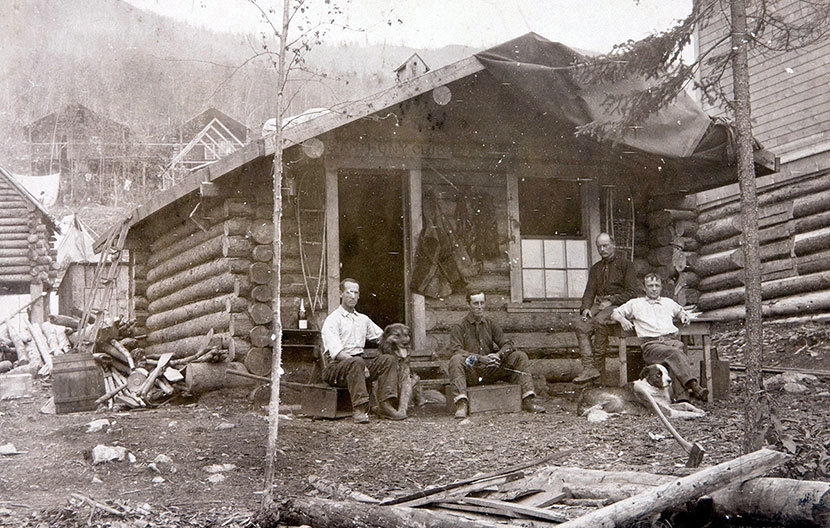Jack London (1876–1916)
From Jack London: Novels & Stories

British novelist Joseph Conrad, whose birthname was Józef Teodor Konrad Korzeniowski, was born 164 years ago, on December 3, 1857, in an area of northern Ukraine that had been part of the Kingdom of Poland.
Conrad’s influence on American literature from the very beginning of his career can hardly be overstated. Many critics and biographers have noted the close friendships between Conrad, Henry James, and Stephen Crane when all three lived in London during the final, tragic year of Crane’s life. Less known is his influence on Jack London—and London himself was the first to admit that Conrad’s fiction had inspired his earliest stories.
When London began writing his Klondike stories, he read Joseph Conrad’s early books, particularly his first story collection, Tales of Unrest, published in 1898. He recommended Conrad to everyone he knew: fellow authors, critics, and even random readers who sent him letters, and there are at least two dozen references to Conrad or his works in London’s published writings.
After years of modest sales, Conrad became a transatlantic best-selling author, first with the novel Chance in 1913, followed by Victory in 1915. After reading the latter novel, London—who had himself been internationally famous for over a decade—was finally moved to send a fan letter to Conrad: “I had just begun to write when I read your first early work. I have merely madly appreciated you and communicated my appreciation to my friends through all these years.” Conrad responded that he and short story writer Perceval Gibbon had very recently discussed London’s work one evening, because Gibbon had read London “in bulk” while reporting from the Russian front. “We admired the vehemence of your strength and the delicacy of your perception,” he wrote to London. They never did have the opportunity to meet; Jack London died at the age of 40 the following year.
Over the past century, critics have detailed the similarities between London’s well-known story “In a Far Country” and Conrad’s “An Outpost of Progress” (included in Tales of Unrest), which imagines two men stuck in the Congo who grow to despise each other. The basic plot is the same in London’s story—two men hole up in an abandoned Arctic cabin together for the winter and slowly drive each other crazy—and several minor scenes and elements in London’s tale echo incidents in Conrad’s, but stylistically and thematically they are entirely different, and each ranks among the best stories by their respective authors.
You can read “In a Far Country” at our Story of the Week site, with an introduction detailing its real-life inspiration: the winter London and a fellow miner lived together in a 120 square-foot room.



